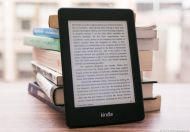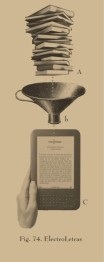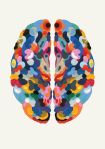 I’m about to launch into an opinion piece about e-readers and bound books, but before I do, perhaps I should address the fact that this normally very reliable weekly blog has fallen off the grid for the last month. And I can’t even tell you why, other than that life has been fully occupied with our annual move to Canada, learning to walk again, and connecting with family and our northern life.
I’m about to launch into an opinion piece about e-readers and bound books, but before I do, perhaps I should address the fact that this normally very reliable weekly blog has fallen off the grid for the last month. And I can’t even tell you why, other than that life has been fully occupied with our annual move to Canada, learning to walk again, and connecting with family and our northern life.
At any rate, whatever the complex logic of dodging commitments, here we are again.
***
Kindles. E-readers. Hmmmm.
I’ve been a zealous reader all my life. I can still remember the magic of Dick and Jane coming to life on the page, of counting the days to the moment when our school library opened on a Thursday, and of getting a new Nancy Drew every Christmas (and reading it under the covers that night til I finished it). I majored in English at university, and have read a book or two a week forever. If, as Malcolm Gladwell says, it takes 10,000 hours to become an expert in something, then reading is an area where I hit my stride decades ago.
I have a battered Kindle that I purchased some three and a half years ago. I bought it on the cusp of a three-week trip, thinking that I wanted to travel light without the usual stash  of heavy books. I was won over immediately. A book is a book is a book, I decided, and if you can get dozens of them on a device that weighs 200 grams and treats the eyes the same way that a printed page does, well, that’s not too shabby, as they say.
of heavy books. I was won over immediately. A book is a book is a book, I decided, and if you can get dozens of them on a device that weighs 200 grams and treats the eyes the same way that a printed page does, well, that’s not too shabby, as they say.
I’ve remained a happy Kindle user. I’m not as bad as Rick, who ordered a book online in bed one night because he didn’t feel like going out to the bookcase to try to find our print version, but I am thoroughly converted. On the occasions when I read a print book—dealing with the heavy weight, losing my place when the bookmark falls out, trying to shove it into my purse for a wait at the doctor’s office—I admit I often have the thought, “This is a great book – why don’t I just order it for my Kindle?”
I love that the Kindle is so light; I love that the process makes books so inexpensive and resource-wise to produce; I love that the “electronic ink” doesn’t involved the computer-style back-lighting that bothers my eyes. I love that I can change the font size to accommodate the amount or quality of light available (my 93 year old mother worships her Kindle for this reason). I love that it can go a month without recharging. I love that I can have the thought that I want a book and then have it in hand a minute later—anywhere in the world. I love that I can delete a book from my Kindle and then relocate it any time I want from my Amazon account.
Not everyone feels the same way. As a matter of fact I’d put myself in the minority of friends who are readers, most of whom prefer the experience of the printed page. And I can absolutely understand that, because in spite of all the Kindle’s indisputable advantages, some deep-seated part of my brain prefers it too.
A few months ago I read a thoughtful, well-researched article on what is being lost as we switch to e-readers. (I wish I could find it so I could pass it on to you right now.) The article made a good number of solid points, the main thrust being that we learned to read in a  particular manner that involves the experience of holding the physical book, of reading pages left and right, of thumbing back to recollect a name or an event. Our eyes learned to move in particular ways. These have become deeply imprinted brain functions that allow for better comprehension and retention.
particular manner that involves the experience of holding the physical book, of reading pages left and right, of thumbing back to recollect a name or an event. Our eyes learned to move in particular ways. These have become deeply imprinted brain functions that allow for better comprehension and retention.
Although the author self-admittedly came from a bias against e-readers, and I come from a bias toward them, I really appreciated the article. There wasn’t a point she made that I would try to refute. Yes, I do read differently when I read a printed book compared with a Kindle book, and perhaps not as well. My brain and its synapses no doubt reject some of the new programming I am trying to sneak in.
But here’s the thing: it’s about being in transition. It’s indisputable that the world is going in the direction of e-reading. Economics demand it. The cost of the bits of plastic, metal and sand in the electronic gadget is in reality probably not much more than the cost of the materials in one paperback book. The cost of “printing” and distribution is miniscule, once the software has been developed and the infrastructure is in place. Accessibility? – Well, when you think about the ubiquity of the cell phone even in developing nations, you know that e-readers cannot be far behind. Because of the low cost, children in the third world will before long learn to read on their Kindles, with access to the written world beyond anyone’s imaginings.
Inconceivable change is coming in these crazy times. Technology has loomed so high and so fast that it conceals our view of the world. Our horse-and-buggy brains aren’t wired for this onslaught. Even the six-year-olds who read to me at Mitchells Island Public School, with their flash cards and colourful little books, won’t be immune to the challenges. There’s a front-page article beside me in the Nanaimo Daily News that says kids aren’t learning to write cursive any more. What are the implications of THAT simple change for the human brain?
The tiger is on the loose. We can ride it, grab it by the tail, or get eaten for lunch by it.
The Kindle is where I take my stand.


Good to read your Shedders again…..Merci…
Sent from Windows Mail
I wondered where your blog was… Thanks for thoughts on the kindle. I must admit that after our conversation at lunch, I purchased the book I wanted (which wasn’t available at the library) and read my first e-book. I loved the convenience of it, but not sure I want to take it to bed!
Point taken, but I’ll offer this counterpoint: http://www.chilliwacktimes.com/news/304751771.html
Funky, fun and defying the inevitable! (It will be an earworm for a day or two, I’m afraid.)
Glad to oblige! I enjoy my Kindle as much as the next guy. Still, I imagine it will be some time before all the used paper books disappear. Perhaps just as well, as it may be to easier than book-burning for Big Brother to key in: DELETE \\CLOUD:”Fahrenheit 451″.
Here’s an interesting perspective I just ran into “Your paper brain and your Kindle brain aren’t the same thing”: http://www.pri.org/stories/2014-09-18/your-paper-brain-and-your-kindle-brain-arent-same-thing